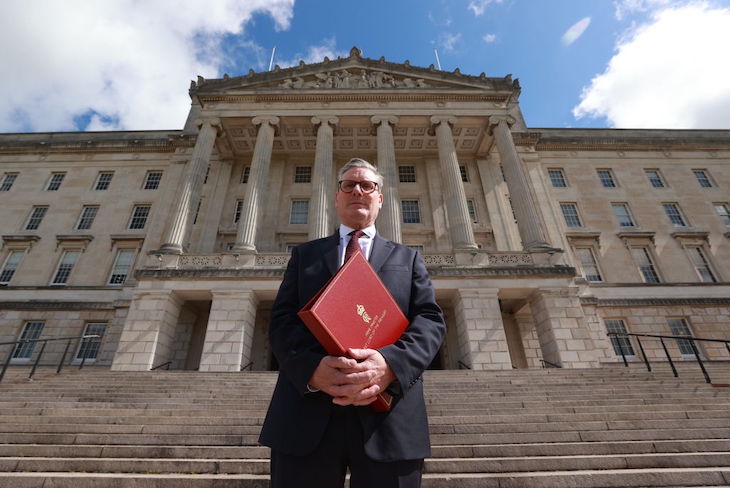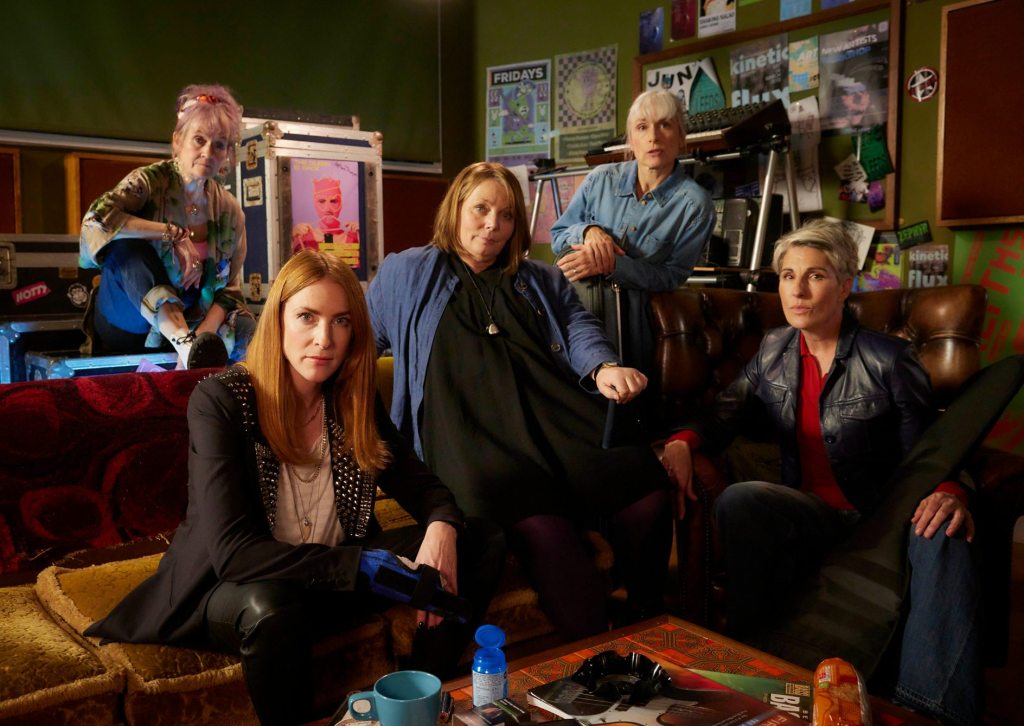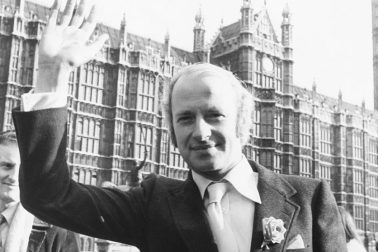Keir Starmer has been in office for less than three weeks, but his government has spent an unusually large amount of time and energy on matters in Northern Ireland. With his newly appointed secretary of state, Hilary Benn, the Prime Minister visited Belfast within days of kissing hands, despite a schedule which also included the Nato summit in Washington. The administration faces a number of pressing problems in Northern Ireland which carry substantial price tags as well as powerful symbolic importance.
Harland and Wolff was one of the great icons of Protestant industrial Belfast
When Starmer and Benn met Northern Ireland’s first minister, Michelle O’Neill of Sinn Féin, one of the first issues to be discussed was the redevelopment of Casement Park in west Belfast. The stadium was built for hurling and Gaelic football in 1953 but closed in disrepair more than a decade ago. A plan is in place to redevelop it, and the ambition is for it to host some fixtures in Euro 2028, when the UK and Ireland will jointly host the football tournament.
The redevelopment has, however, been plagued by delays and planning objections, and the cost has ballooned. In 2011, the Northern Ireland Executive committed to supplying £61.4 million, while the Gaelic Athletic Association (GAA) promised £15 million and the Irish government has agreed to contribute £40 million. But the budget may now exceed £300 million, and the Northern Ireland secretary has been clear that there is a substantial shortfall. When he visited Belfast for the first time, Benn told the media ‘there’s a certain amount of money in the pot but it’s not enough’, and explained that he was committed to the redevelopment and that it was ‘probably the most urgent issue’ on his agenda, but it was not certain it would happen in time for 2028.
The Casement Park project is not just about money, but about identity and symbolism. The GAA is closely associated with Irish nationalism and Casement Park has seen a number of large nationalist demonstrations over the decades, including an arms-toting rally by the Provisional IRA in 1979.
O’Neill has vowed that its redevelopment will be carried out ‘on her watch’, which really means before the next election for the Northern Ireland Assembly in May 2027. The first minister is keenly aware of the political significance of a football tournament played in Great Britain, Northern Ireland and the Republic of Ireland, and of a venue in Belfast funded by Westminster, Dublin and the GAA. But the shortfall still exists, despite intense political pressure from nationalists and republicans.
Five miles north-east of Casement Park is the Harland and Wolff shipyard. Once one of the biggest shipbuilders in the world, the company built the Titanic and her sister ships, Olympic and Britannic, as well as countless warships in the First and Second World Wars. Like most British marine construction firms, however, Harland and Wolff has endured much leaner times recently. In 2019, it went into administration and was subsequently bought by London-based InfraStrata. There has been some financial recovery but its position remains precarious, and the company had asked the government to guarantee a £200 million loan which would enable it to restructure some existing debt and make other changes.
On Monday, the business and trade secretary, Jonathan Reynolds, issued a written ministerial statement confirming what everyone had suspected: that the government would not provide the guarantee requested, nor would it provide any emergency liquidity funding. This was because of ‘a very substantial risk that taxpayer money would be lost’. Harland and Wolff is now in urgent negotiations with its existing loan partner, Riverstone Credit, but the outcome is hard to predict and the company could still collapse.
Once again, this is about more than money. Harland and Wolff was one of the great icons of Protestant industrial Belfast: in the 1920s, Catholic workers were routinely expelled from their jobs and the shipyard had a reputation as a Protestant closed shop, while 400 Catholic employees were removed in the summer of 1970 as the Troubles intensified. The leader of the Democratic Unionist Party, Gavin Robinson, whose East Belfast constituency includes the shipyard, has campaigned energetically for its survival, urging the government ‘to reiterate its support for shipbuilding in Belfast’. However, as with Casement Park, the money is simply not there.
These demands on the government’s financial support – and, implicitly, its political sympathy – will not go away, though each has a clock ticking more and more loudly. Benn has expressed his commitment to Casement Park and to shipbuilding in Belfast, which is kind but empty. The challenge which remains is how an administration which has promised such absolute financial prudence will accommodate two groups – each of which will accept nothing less than total commitment. More than that, funding for either project will be seen by some as a betrayal of the other. Welcome back to Belfast, Sir Keir.








Comments